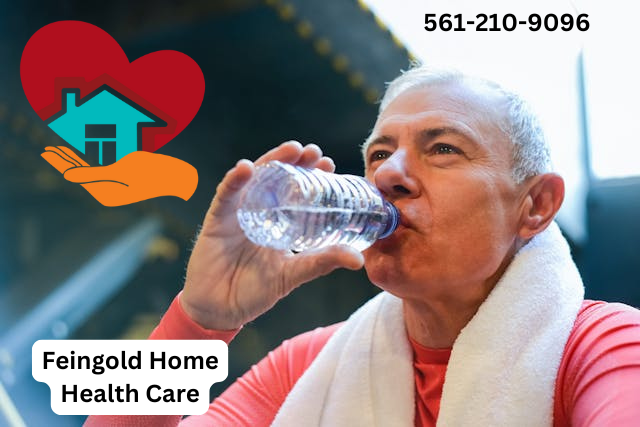As summer temperatures rise, seniors face heightened risks due to the heat. Aging bodies often struggle to regulate temperature as effectively as younger ones, making elderly individuals particularly vulnerable to heat-related illnesses.
One significant concern is dehydration. Older adults may not feel thirsty even when their bodies need fluids, increasing the risk of dehydration. Dehydration can lead to serious complications like heat exhaustion or heatstroke, which are potentially life-threatening. Symptoms of heat exhaustion include heavy sweating, weakness, dizziness, nausea, and headache, while heatstroke, a more severe condition, can cause confusion, rapid pulse, and loss of consciousness.
Additionally, chronic medical conditions common among seniors, such as heart disease, diabetes, and respiratory disorders, can be exacerbated by high temperatures. For example, cardiovascular problems may worsen as the heart struggles to cope with the increased demand for blood flow to the skin to release heat. Diabetic individuals may experience blood sugar imbalances due to changes in their hydration levels and activity patterns.
Medications frequently taken by older adults can also impact their heat tolerance. Some drugs can interfere with the body’s ability to regulate temperature or increase the risk of dehydration. For instance, certain diuretics and antihypertensives might lead to fluid loss, making it more challenging for seniors to stay hydrated.
To protect seniors during the hot months, it’s crucial to encourage them to stay hydrated by drinking plenty of water, even if they don’t feel thirsty. They should avoid alcohol and caffeine, as these can exacerbate dehydration. Staying indoors during the hottest parts of the day and using air conditioning or fans can help maintain a cooler environment. Light, loose-fitting clothing and frequent breaks from heat are also beneficial.
Regular check-ins from family members or caregivers can help ensure that seniors are safe and healthy during extreme heat events. By being proactive about these precautions, the risks associated with summer heat can be significantly reduced, helping to ensure a safe and enjoyable season for older adults.
SOUTH FLORIDA HOME HEALTH CARE – FEINGOLD NURSING


Recent Comments